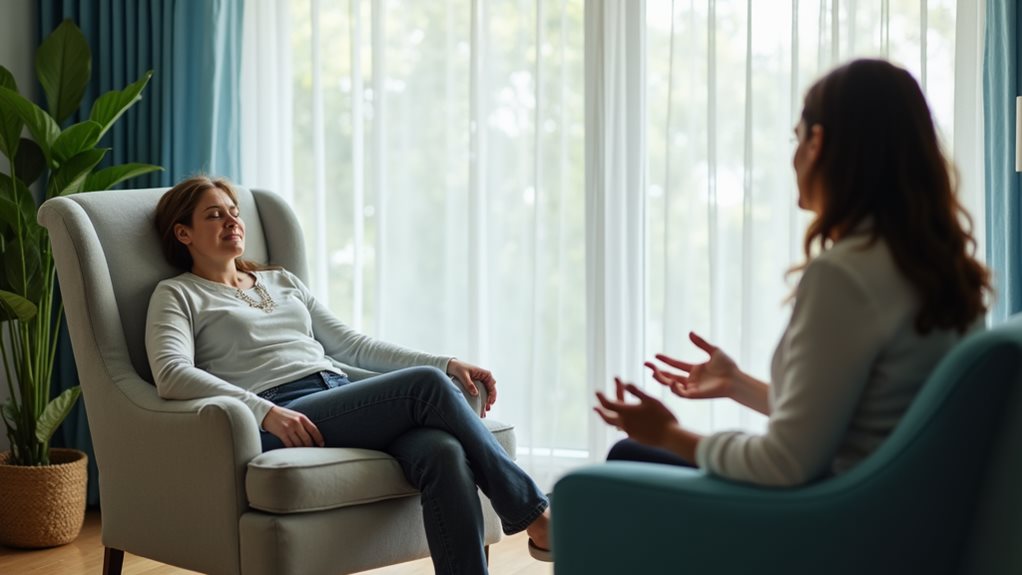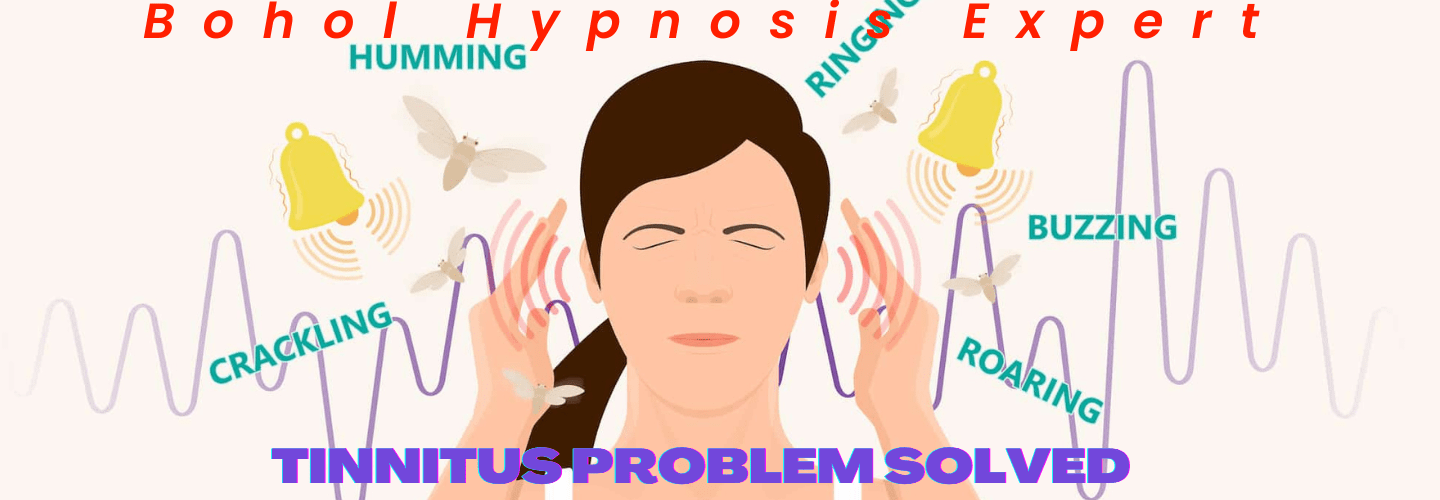
Hypnosis has been explored as a potentially effective method for alleviating allergic reactions by promoting relaxation and modulating the immune system's response to allergens. Techniques such as guided visualization can help reduce symptoms like sneezing and itching, although results can vary based on individual differences and the severity of allergies. The effectiveness and mechanisms behind hypnosis for allergy relief continue to be studied, and further insight may reveal additional benefits and applications for this therapeutic approach.
Key Takeaways
- Hypnosis can reduce allergic reactions by altering immune responses and decreasing inflammation.
- Sessions involve relaxation techniques that help manage symptoms like sneezing and itching.
- Continuous hypnotherapy may desensitize individuals to allergens, reducing symptom severity.
- Discuss goals with a hypnotherapist to tailor sessions for effective allergy relief.
- Check insurance coverage for hypnosis to manage potential treatment costs.
Understanding the Basics of Hypnosis
To grasp the concept of hypnosis, it is essential to recognize it as a mental state characterized by intense focus and relaxed awareness.
Hypnosis techniques function by guiding individuals into a trance-like condition where the subconscious mind becomes more accessible. This heightened state of suggestibility allows for the modification of thoughts, emotions, and behaviors, which are otherwise under less conscious control.
How Hypnosis Interacts With the Allergic Response
While the exact mechanisms by which hypnosis impacts the allergic response remain partially understood, preliminary research suggests a significant interaction between hypnotherapy and the body's handling of allergens.
Hypnosis benefits are observed as it potentially alters the way the immune system responds to allergens, thereby reducing the severity of allergic reactions. This interaction involves the induction of a relaxed state, which may modulate immune function and decrease inflammation associated with allergies.
However, the evidence remains inconclusive, and further studies are necessary to fully establish how hypnosis can consistently influence and mitigate allergic responses in a clinical setting.
The Science Behind Hypnosis and Allergy Relief

Several studies have explored the potential of hypnosis in alleviating allergy symptoms, though the scientific community remains divided on its efficacy. Hypnosis techniques aim to reprogram the body's response to allergy triggers, potentially reducing reactions. Below is a detailed breakdown of current findings:
| Study Focus | Result Summary | Limitations |
|---|---|---|
| Allergic Rhinitis | Reduced nasal symptoms | Small sample size |
| Skin Allergies | Lowered itch and discomfort levels | Lack of control group |
| Psychological Impact | Improved emotional well-being | Short follow-up period |
| Symptom Management | Decreased use of medications | Varied hypnosis methods |
| Longevity of Effects | Signs of long-term relief | Needs further study |
This data illustrates the complex interplay between hypnosis and allergy management, highlighting the need for more extensive research.
Preparing for Your First Hypnosis Session
Starting your first hypnosis session requires thoughtful preparation to maximize the potential benefits and guarantee a comfortable experience.
Effective session preparation involves discussing your goals with the hypnotherapist and ensuring a conducive environment for relaxation. Familiarize yourself with basic hypnosis techniques that may be used, such as guided visualization or progressive relaxation, to enhance receptiveness.
Arranging a quiet, interruption-free setting is essential. Comfortable seating and minimal distractions aid in maintaining focus and deep relaxation.
Such meticulous preparation not only optimizes the session's effectiveness but also eases any apprehensions, paving the way for a more successful therapeutic outcome.
What to Expect During a Hypnosis Treatment

Understanding what to expect during a hypnosis treatment can greatly alleviate any apprehension and prepare individuals for a more beneficial experience. The session typically starts with the hypnotherapist discussing client experiences to tailor the hypnosis techniques. Clients are then guided into a relaxed state, enhancing receptiveness to suggestions aimed at managing allergic reactions.
| Phase | Description |
|---|---|
| Initial Consult | Discuss client's specific needs and goals. |
| Induction | Gentle lead into a state of deep relaxation. |
| Therapeutic Work | Application of techniques to address allergies. |
This structured approach guarantees a focused and effective session.
Long-Term Benefits of Hypnosis for Allergy Sufferers
While the immediate effects of hypnosis on allergy symptoms are well-documented, the long-term benefits are particularly compelling for chronic sufferers.
This benefits overview highlights how hypnosis can desensitize individuals to allergens, progressively reducing symptom severity over time. It also boosts the body's natural healing processes, enhancing immune response and reducing inflammation.
Additionally, by addressing underlying psychological triggers, hypnosis may decrease the likelihood of future allergic reactions.
Long-term effects include sustained stress reduction and improved overall mental well-being, which contribute to a higher quality of life with minimal interference from allergy symptoms in daily activities.
Addressing Safety and Side Effects in Hypnotherapy

Although hypnotherapy is generally considered safe when conducted by a qualified professional, it is important to acknowledge and manage potential side effects and safety concerns.
Adhering to established safety protocols is essential to minimize risks such as mild dizziness, headache, or disorientation, which some individuals might experience post-session.
Hypnotherapists must guarantee a clear understanding of a client's medical history and mental health status to tailor approaches safely. Continuous monitoring during sessions can preemptively address any discomfort.
Ultimately, while side effects are typically minor and transient, prioritizing client safety enhances the therapeutic effectiveness and maintains the integrity of hypnotherapy as a treatment modality.
Debunking Myths About Hypnosis and Allergies
Hypnosis can really exacerbate allergies or is this a misconception rooted in misinformation? Common misconceptions suggest that hypnosis can worsen allergy symptoms; however, evidence indicates otherwise.
Hypnosis has been shown to aid in managing and reducing the severity of allergy symptoms by altering the body's response to allergens. The effectiveness of hypnosis in this scenario stems from its capacity to induce deep relaxation and modify negative mental associations related to allergens.
Analytical reviews and clinical studies support the therapeutic potential of hypnosis, debunking the myth that it might heighten allergic reactions, thereby affirming its role as a beneficial adjunct treatment in allergy management.
Choosing the Right Hypnotherapist for Allergy Management

Selecting the appropriate hypnotherapist for allergy management is a critical step towards effective treatment. Evaluating hypnotherapist qualifications rigorously is paramount.
Prospective clients should verify credentials and specialized training in both hypnotherapy and allergy management. It is advisable to review documented success rates with similar cases, and assess peer and client reviews for additional insight.
Discussing treatment goals explicitly helps align expectations and tailor approaches effectively. An analytical selection process enhances the likelihood of achieving significant relief from allergy symptoms, ensuring that the therapeutic intervention is not only appropriate but also ideally configured for the individual's specific needs and conditions.
Evaluating the Costs and Insurance Options for Hypnosis Sessions
When considering hypnosis for allergy relief, it is essential to evaluate the financial implications and insurance coverage options.
Hypnosis sessions typically range from $75 to $150 per hour, with variability based on the practitioner's expertise and location. A cost comparison among local hypnotherapists can reveal the most economical choices.
Insurance coverage for hypnosis varies considerably; many insurers categorize it as an alternative treatment, which may not be routinely covered.
It's advisable for individuals to consult their insurance providers to understand the specifics of their policies regarding hypnosis, ensuring they are not met with unexpected expenses.
Frequently Asked Questions
Can Children Undergo Hypnosis for Allergies Safely?
Children can undergo hypnosis for allergies, focusing on managing reactions to allergy triggers. However, it's essential to consult healthcare professionals to guarantee safety and appropriateness, considering the child's age and specific health conditions.
How Quickly Can I See Results From Hypnosis?
The hypnosis timeline for observable results varies; some individuals may notice immediate effects, while others require multiple sessions. Efficacy depends on personal responsiveness and the nature of the allergy. Continuous assessment is advisable.
Are Hypnosis Sessions Effective via Online Platforms?
Online hypnosis sessions can be effective, offering convenience and accessibility. However, their effectiveness varies based on the individual's receptiveness and the skill of the therapist. Evidence remains mixed, highlighting the need for further research.
Can Hypnosis Eliminate the Need for Allergy Medications?
Hypnosis techniques may modify responses to allergy triggers, potentially reducing reliance on medications. However, evidence is limited and variable; consequently, hypnosis should complement, not replace, traditional treatments pending further research. Consultation with healthcare professionals is advised.
How Often Should I Undergo Hypnosis to Maintain Benefits?
Regarding frequency recommendations for maintaining benefits, session duration often varies. Ideally, individuals should consult their hypnotherapist to tailor frequency based on personal response and progress, ensuring an evidence-based, cautious approach to treatment effectiveness.
Conclusion
To sum up, while hypnosis appears to be a nearly miraculous gateway to allergy relief, transforming sufferers into masters over their own physiological responses, the scientific community urges cautious optimism. The efficacy of hypnosis, though potentially groundbreaking, demands rigorous empirical scrutiny. As we edge closer to a paradigm shift in allergy treatment, patients and practitioners alike are encouraged to weigh the glittering promises against the steadfast bedrock of evidence-based medicine.





